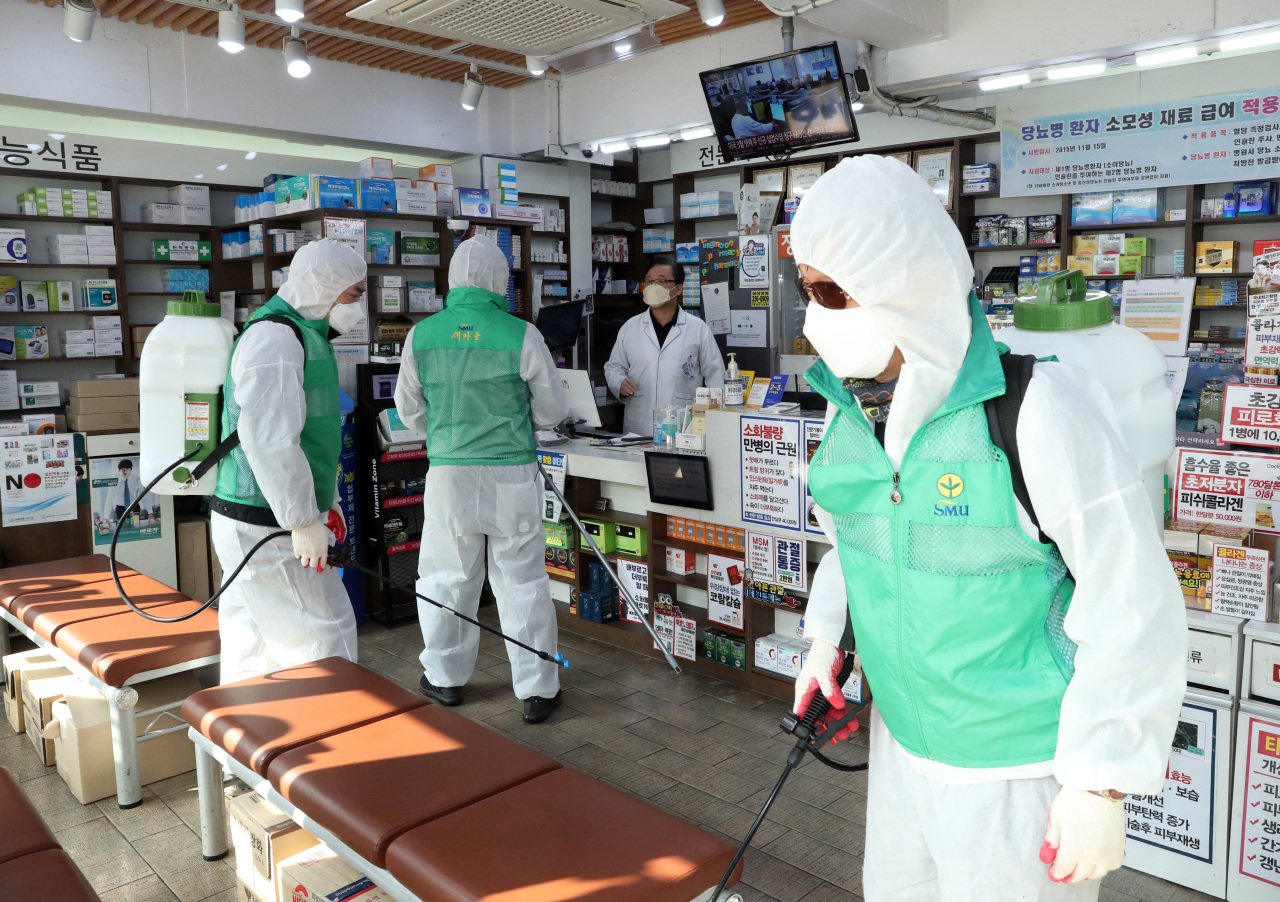Crossing 10,000-case threshold: A look back on coronavirus chaos

(Yonhap)
South Korea, one of the first countries hit by novel coronavirus outside China, marked a grim coronavirus milestone Friday when the virus toll surpassed 10,000 — 74 days after the first case was reported.
Grim as it may look, the crossing of the 10,000 mark came amid a stabilizing trend of new infections.
The country counted 86 new cases in the 24 hours to midnight Thursday, markedly down from a peak of 909 on Feb 29.
Of the 10,062 people infected with the virus, 6,021 have fully recovered, 174 are dead and the remaining 3,867 are quarantined for treatment.
The country’s first encounter with the novel pathogen was on Jan. 20, when a 35-year-old Chinese woman from Wuhan city, the epicenter of the novel coronavirus pandemic, tested positive.
After an initial slow growth, the country experienced an explosion of cases, after with a 61-year-old woman, known here as the Patient 31 associated with a branch of Shincheonji Church of Jesus in the southeastern city of Daegu, was reported on Feb. 18. The clandestine religious sect became the single largest cluster of COVID-19 infections, with 5,175 which is more than half of the country’s total.
The first casualty from COVID-19, the disease caused by the virus, was a 63-year-old man who died of pneumonia at Daenam Hospital in the southeastern city of Cheongdo on Feb. 19, which became another cluster of 120 cases.
The country raised its virus alert level to the highest on Feb. 23 and delayed the start date of kindergartens, elementary, middle and high schools on the following day. The schools remain closed as of Friday.
An aggressive “trace, test and treat” program was put in place, while the general public was advised to avoid large gatherings and going to crowded places.
Since March 21, daily new infections have been fluctuating at around 100.
The virus’ spread in the local epicenter – the southern city of Daegu and the surrounding region –has shown a clear sign of slowing. Daegu counted just 9 new cases on Friday, the first time in 45 days to see a single-digit increase.
The main battle has been moved to in the capital area and at the airport. Seoul and its surrounding Gyeonggi Province reported 42 new cases, nearly half of the 86 nationwide, and 22 were detected at quarantine checkpoints at the airports. The total accumulated number of imported cases are 647, according to the KCDC.
Prime Minister Chung Sye-kyun said Friday he expected that the inflow of virus cases from abroad will come under control soon.
“For the time being, the number of cases will increase in accordance with the people coming from overseas. But infection won’t spread if blocking them from contacting with communities is well managed,” he said.
Starting from Wednesday, Korea requires all arrivals from overseas to complete 14 days of quarantine.
However, those who entered the country, before the measure were introduced, remain in a blind spot in the country’s efforts to monitor potential spread.
Source:koreaherald.com/

